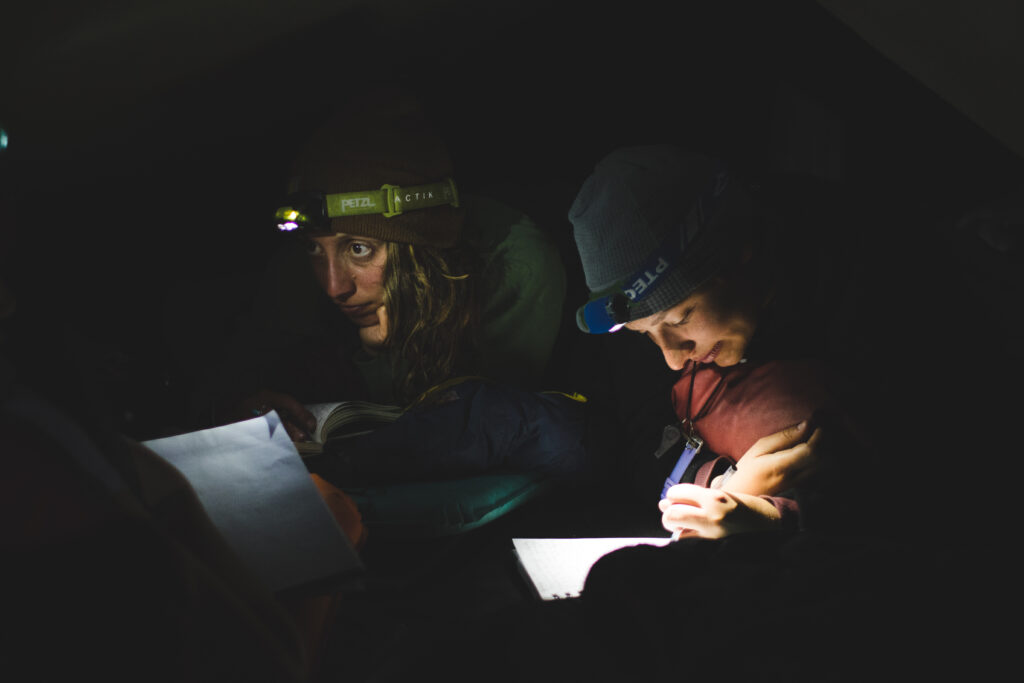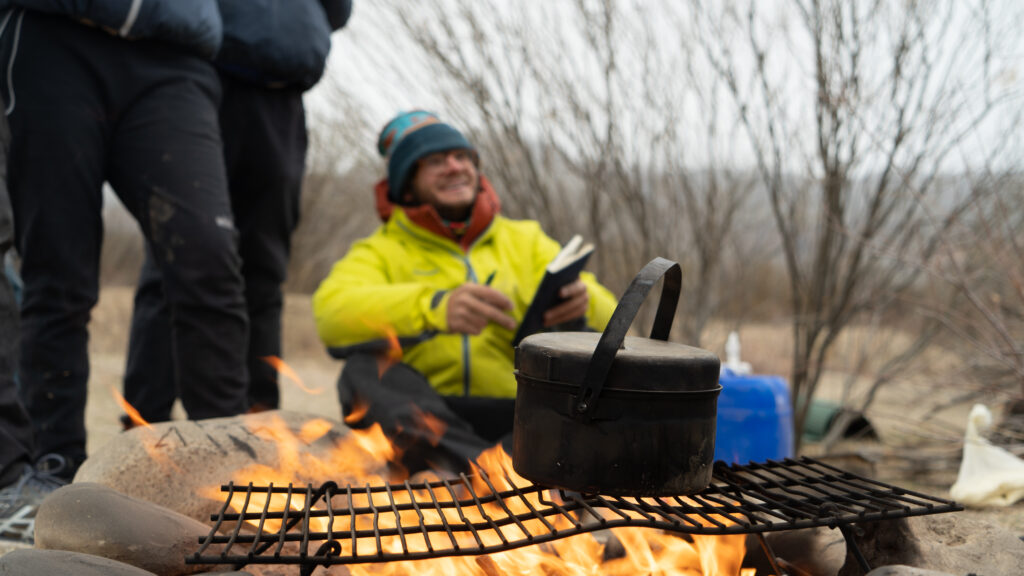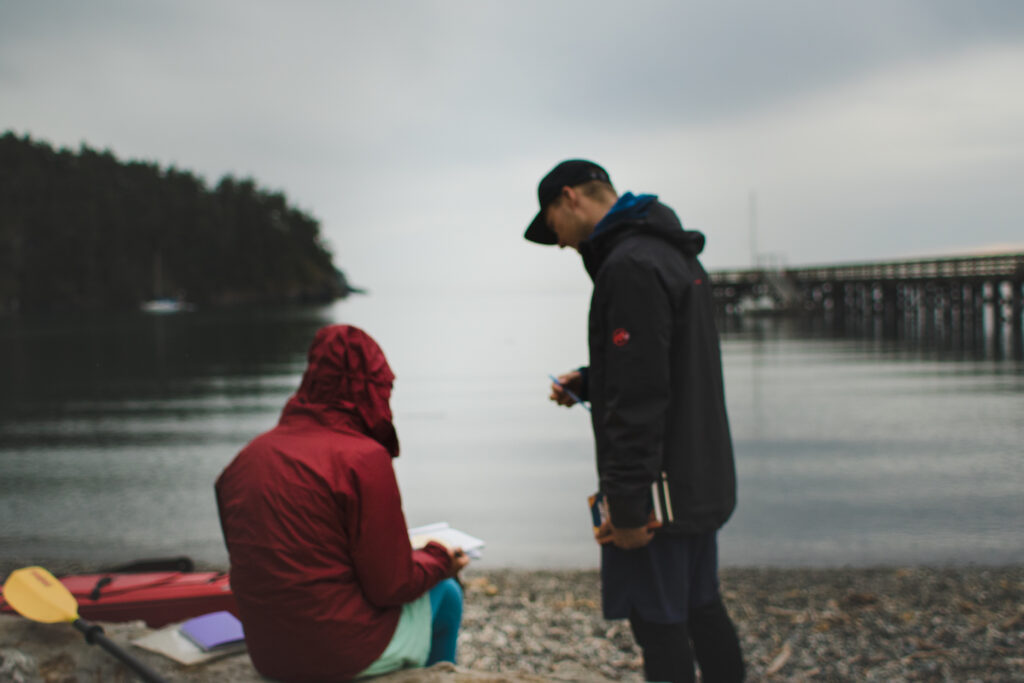What Is Journaling?
At its core, journaling is a physical form of personal processing. A journal can look a variety of ways, but at its core it creates a time and place for you to privately dump thoughts. Taking the time to reflect on experiences can catalyze growth. By turning mental chaos into a physical form, it forces you to think through it all, which allows you to come to conclusions, determine what’s important, notice patterns, make a plan etc. It’s the same idea as talking to a therapist or ranting to a friend—I’ve been thinking a lot about this incident, transition, relationship… and I just need to talk it out. With a journal, you talk it out with yourself, and in the process, it’s recorded.

Outdoor Educator students journal before going to bed. Photo by Charis Nichols
How to Keep a Journal
There is no one single way to keep a journal. What is important is that you release expectations of productivity and simply be okay with whatever comes from the process. Personally, I like to write with pen and paper. I have a new journal book for every season and I fill the pages with a record of my day, thoughts I’ve been mulling over, fears, hopes, plans and more. On an Outward Bound course, we offer blank journals to each student and oftentimes invite them to answer prompts during private reflective time. Prompts are a great way to journal if you don’t know where to start. They can easily be found online, and a few will be at the end of this post.
Journaling Comes in All Shapes and Sizes
Journaling need not be limited to prose. Drawings, diagrams and poetry are a few examples of other processing forms that can work equally as well. If writing with pen and paper isn’t your style, having an ongoing word document on the computer can be a great way to journal as well. What is beautiful and important with a journal is that it is private. No one is going to see your processing, so feel free to let it flow however it feels right for you.

On expeditions, students record the day’s events in a group journal that is read every night before bed. Photo by Mac Gaither
Creating Structure Around Journaling
Structure can be helpful when journaling, if you’re someone who likes structure. For example, I aim to journal every day, and at the top of each entry I put the date, and when on trail, my campsite. While I appreciate and rely on structure, journaling is truly a practice of determining what you want, and honoring that. You don’t need to journal every day, not even every week. If you are looking to start a journal in your life, my first piece of advice would simply be to buy a special notebook just for the cause, and set it in a safe place. When the spirit moves you, go for it. Feelings of obligation can ultimately defeat the purpose of journaling, as it really needs to be intrinsically motivated.
“Spending time on a journal entry is an act of self-love in the present moment, and it offers so much to your future self.”
The Value of a Record
One of my favorite parts of my journal practice is the paper trail documentation of my life that it leaves behind. I once did a 4-month road trip and journaled every day—I essentially wrote a book in the process. This is a book I hope to give to my kids someday. Going back to read journals from previous seasons brings up feelings of nostalgia, sure, but also feelings of pride and amazement for how much growth has occurred since. Spending time on a journal entry is an act of self-love in the present moment, and it offers so much to your future self.
Journal Prompts to Get You Started
- Why do you want to start a journal practice?
- What are you grateful for in your life right now?
- Make a list of people you admire, then make a list of commonly shared characteristics
- “I Am” poem: ten lines or so, no need to rhyme, each line starts with “I am”
- Write a letter to your younger self
- Write a letter to your future self
- Tell a story from your week where you were the most stressed
- Write a letter to someone who hurt you, no need to actually mail it
- Make a daily list of things you are grateful for from that day
- Write down a memory that sticks out to you and why it’s important

Photo by Charis Nichols
About the Author
Addie Hurwitz is a field Instructor for the North Carolina Outward Bound School, primarily out of Table Rock base camp. Addie has a degree in Recreation, Park, and Tourism Management from Penn State University. She loves working in experiential education and takes similar joy from studying its academic side. When not on a course, Addie is likely skiing or traveling.




